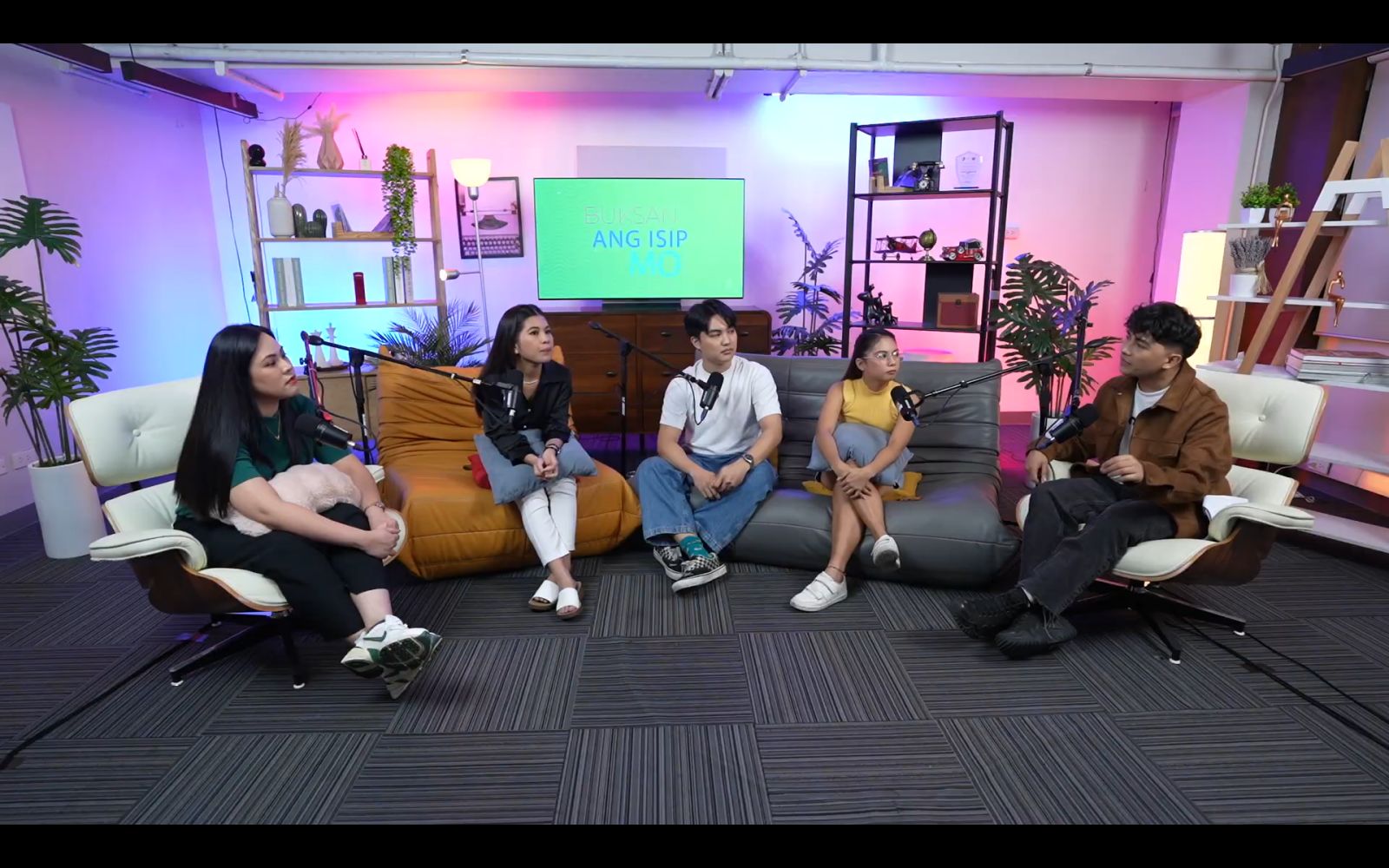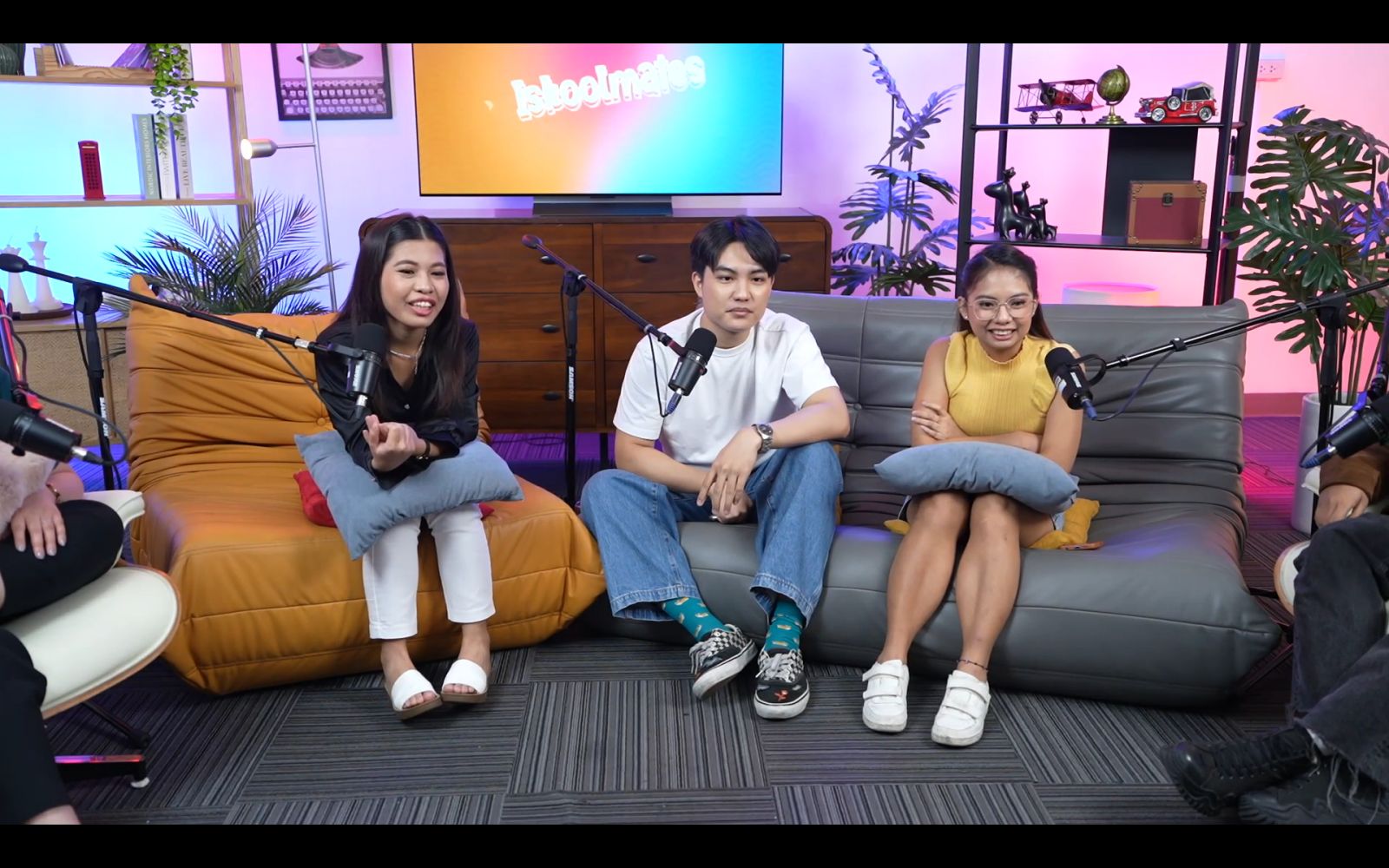
By Xian Tablizo / PTV Public Affairs intern
When it comes to creating art—tools like digital software, digital brushes, and styluses have become essential. However, can artworks produced through artificial intelligence be considered art?
In this podcast session of “Iskoolmates”, hosted by our dynamic duo, James Ramada and Tricia Bersano, we are joined by student guests: Jaetrix Valdez from Mapúa University, Mikylla Rodenas from Bulacan State University, and Shiela Mae Agawa from Camarines Sur Polytechnic Colleges. Their insights will help us explore how they use AI, how they can future-proof themselves against over-reliance on such tools, and whether they believe AI might eventually take over their future careers.
Instantly classified ‘tamad’: Is using AI really just laziness?
Students fear being labeled as “tamad” (lazy) the moment they admit to using AI. Often, people forget to check and modify the AI-generated response, leaving phrases like: “Sure, here is your revised work…” or “If you want to change the tone of this prayer…”
This has led to AI becoming somewhat of a taboo, particularly among students, because of the stigma attached to it.
Student guests clarified that AI is a “tool” that helps expand ideas, check and correct grammar, and more. It assists in overcoming creative blocks and simply makes the work better.
However, when using AI, they said, it is important to validate, clarify, and fact-check every generated output. While AI can help organize and refine work, relying on the “beauty” of perfect prompts can lead to an overdependence on the technology, diminishing one’s independence and creativity.
Relying solely on AI-generated content without proper scrutiny could lead to errors, so it’s essential to ensure the work is accurate and authentic.

Schools’ policy on AI
Jaetrix cited University of the Philippines – Diliman, where the use of AI tools is allowed. According to him, the grading criteria in the university have been adjusted to focus more on the content and the overall idea of the work, rather than the details and structure.
For example, in essays, grammar is not considered as important, whether the tone is AI-generated or human-written. What matters most is the content and the quality of the ideas presented.
However, there are other schools that are against the use of AI-generated work. To address this, they have implemented AI-checkers, with a threshold ensuring that AI-generated content does not exceed 10%.
Host James highlighted a concern among students: the fear that AI-checking tools may flag their work as “100% made by AI”, even when the ideas, opinions, and writing are entirely their own.
Mikay pointed out that “free AI checkers often have poor accuracy,” and while subscription-based services might offer better results, they could pose a problem for students due to cost.
Competing with AI prompts: Should artificial intelligence be considered an artist?
While AI can be described as a tool, can it also be used in art competitions? A recent Facebook post from a school announcing an “AI-generated Art Contest” sparked outrage among netizens, with many criticizing the notion of submitting AI-generated art and having it considered as the work of an artist.
“Although the idea came from a human, if the process was done by AI, is it still art?” Mikay provokes, questioning the fairness of using AI for art creation, as it undermines the value of artists who have invested so much effort into visualizing and brushing their masterpieces.
James then asked whether we should continue to use AI in media and the arts—should it be labeled as “AI-generated”? Shiela responded by saying, “Any written work is labeled with the writer’s name,” while Mikay added, “It should only be labeled as AI-generated if it’s copied directly from the prompt or if the majority of the idea and content comes from AI.”
Shaping our future with AI: Embracing change and creativity
James discussed how AI is shaping our future, particularly in education, media, and healthcare. As AI evolves, students must not only rely on tools such as ChatGPT, but also focus on improving their cognitive skills and critical thinking. AI should enhance human creativity and judgment, not replace it.
The discussion further highlighted that while AI can handle repetitive tasks, it cannot replicate the emotional intelligence and creativity that humans bring to their work, especially in fields like media and communications.
Tricia emphasized that to future-proof ourselves, we need to focus on skills that AI cannot replace: creativity, originality, and thoughtfulness. Instead of using AI for answers, we should leverage it as a tool to enhance our own ideas and problem-solving abilities.
As we move forward, it is also crucial for students and everyone else to understand AI’s role in their craft and learn how to use it responsibly. By mastering essential skills and embracing AI as a complement to human potential, we can ensure that it serves us—rather than overshadow our capabilities.
The future is now, and it is in our hands to shape it wisely.
-bjlc / avds
